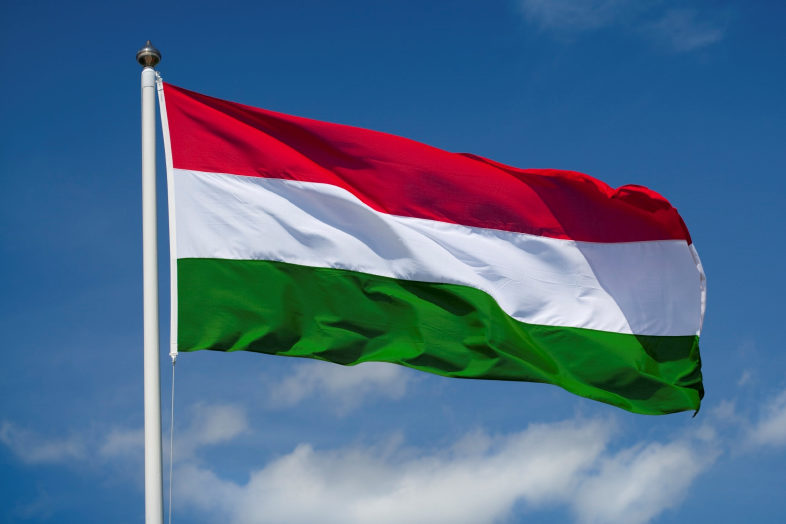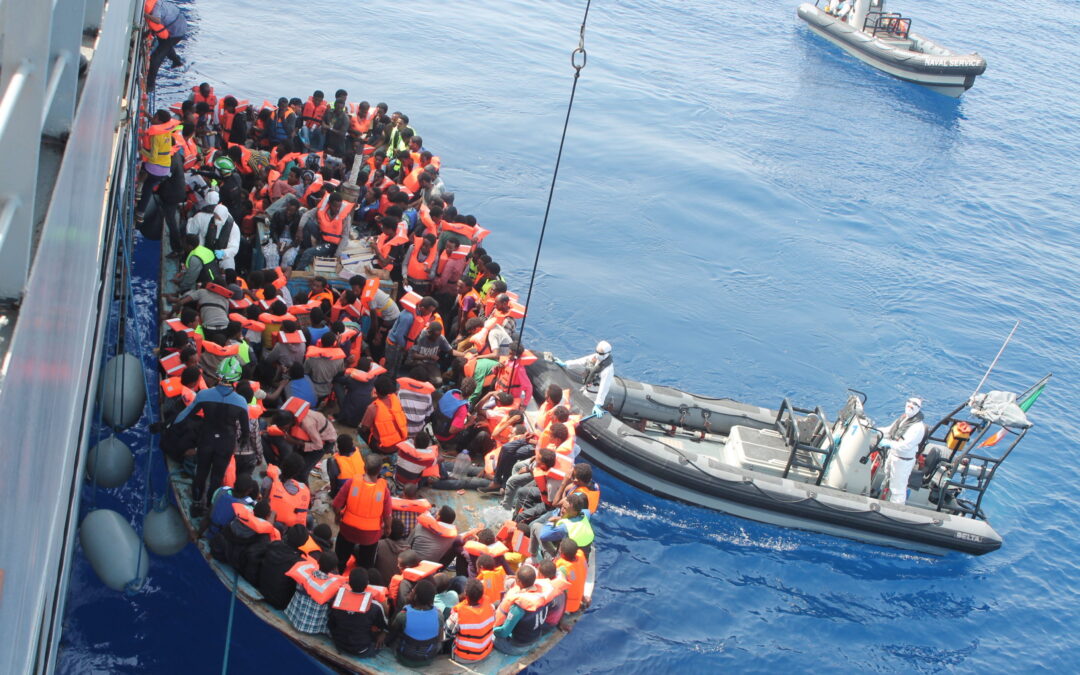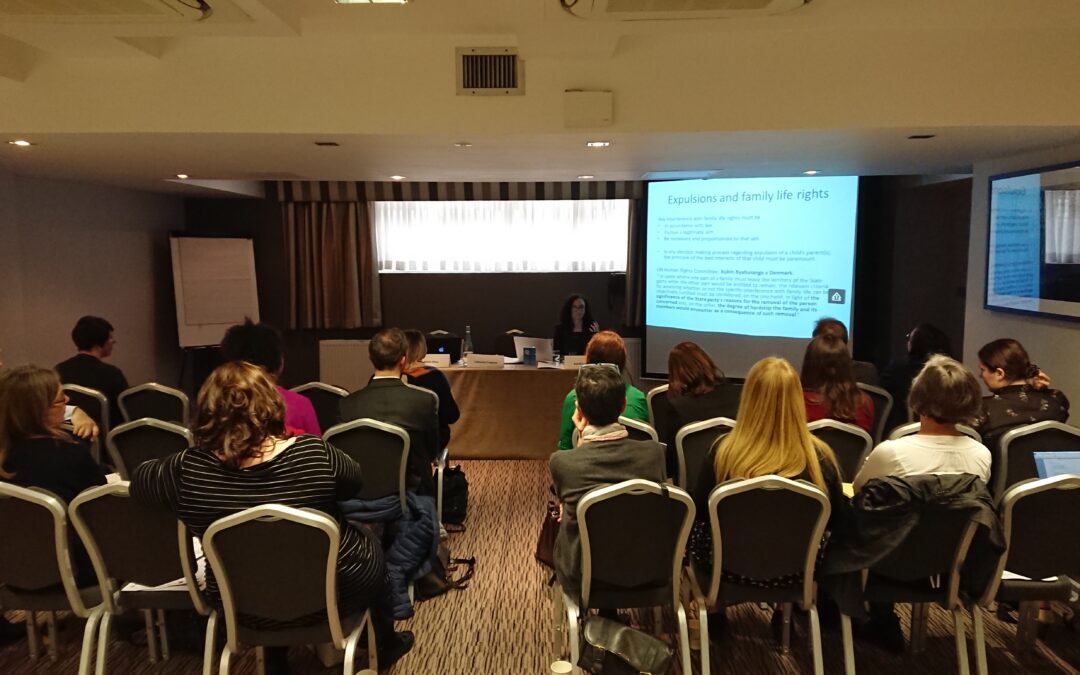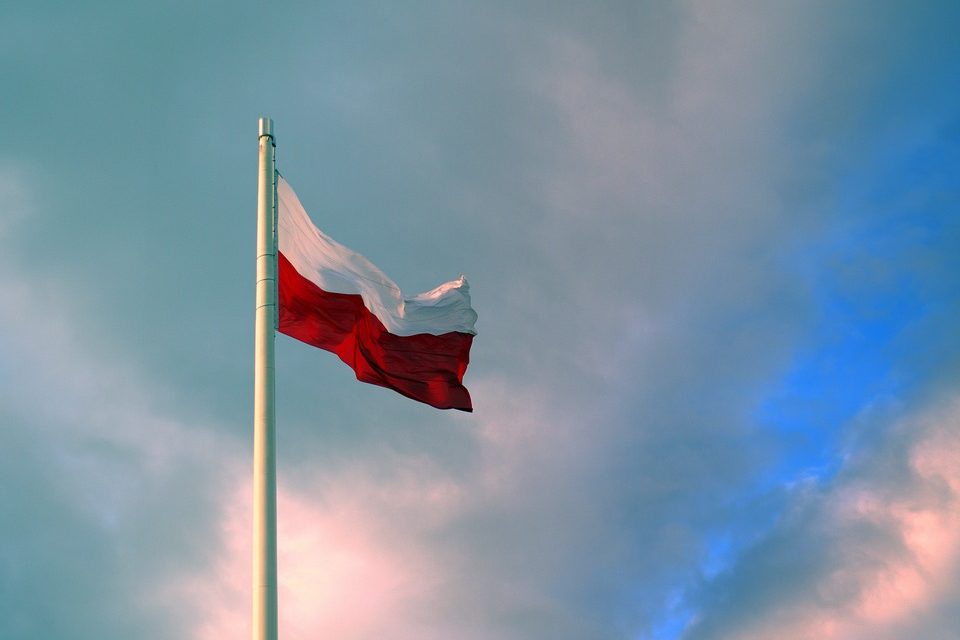
Mar 23, 2020 | News
The ICJ called today on the Parliament of Hungary not to approve a Government bill that would extend indefinitely the emergency powers of the executive to counter the Covid-19 pandemic.
The proposed legislation would enable executive rule by decree, without parliamentary approval, and would impose harsh restrictions on freedom of expression.
“States of emergency, whatever the reason to invoke them, must never be allowed to become permanent,” said Róisín Pillay, Director of the ICJ Europe and Central Asia Programme.
“Emergency measures that restrict human rights must be constantly reassessed to ensure that they remain necessary and proportionate. And even where measures are temporarily necessary, they should be subject to a “sunset clause” that ensure that it can be reviewed and will lapse if no longer justified ”.
The Hungarian emergency legislation includes offences of publishing false or distorted facts that interfere with protection of the public or cause public alarm – offences which have the potential to significantly and unduly restrict freedom of expression.
International human rights law requires that any interference with freedom of expression must be in sufficiently clear terms to be adequately prescribed by law and must be necessary and proportionate to the legitimate aim that it serves.
“This legislation is particularly worrying in a context where the Hungarian government has systematically undermined the rule of law and protection of human rights, including freedom of the media and civil society, and the independence of the judiciary in recent years,” Róisín Pillay added.
“The emergency powers are therefore particularly open to arbitrary or abusive application, without effective scrutiny by parliament or an independent judiciary.”
Background
The Bill on Protection against the Coronavirus (Bill T/9790) in the form of tabled by the Government will extend the state of danger that it had ordered by government decree from 11 March 2020.
The ICJ understands that the Bill will allow the government to rule by decree without Parliamentary scrutiny. The legislation would make it a criminal offence, punishable by imprisonment, to publish false or distorted facts that interfere with protection of the public or that alarm or agitate the public, or to interfere with a quarantine or isolation order.
Under international treaties to which Hungary is a party, including the European Convention on Human Rights and the International Covenant on Civil and Political Rights, States may take emergency measures to derogate from their international human rights law obligations in times of crisis, only the extent strictly necessary to protect the life of the nation. Derogating measures may only limit the scope of certain rights to the extent strictly necessary to meet a threat to the life of the nation, but they do not entirely suspend the applicability of any right in its entirety.
This necessity must be continually re-assessed so that the derogating measures apply for the shortest time possible. Certain human rights, including the right to life, the prohibition of torture or ill-treatment, and the essential elements of arbitrary deprivation of liberty and to a fair trial and the right to an effective remedy can never be restricted even in a state of emergency.

Mar 3, 2020 | News
The ICJ today called on the Greek authorities to withdraw their decision to close its border with Turkey for “national security” reasons as it constitutes a clear breach of the country’s obligations under international refugee and human rights law as well as EU law.
Prime Minister Kyriakos Mitsotakis has ordered the closure of the border with Turkey for “national security” reasons as thousands of refugees have been arriving at the border with Greece.
The ICJ said that the decision to close the border to migrants and refugees coming from Turkey breaches their right to seek asylum, the principle of non-refoulement and the prohibition of collective expulsion, which Greece must uphold under international human rights and refugee law and the EU Charter.
“Any violence and push-backs occurring at the border and at sea must stop and the persons responsible for acts of violence must be duly investigated and prosecuted. Respect for human rights principles that form part of the EU’s founding values require that refugees are not pushed back at the borded,” said Massimo Frigo, Senior Legal Adviser for the ICJ Europe and Central Asia Programme.
“Assistance should be centred on fostering access to asylum and not on strengthening border control where, in the current situation, EU authorities, such as Frontex, risk assisting in human rights violations,” he added.
The ICJ calls on the European Union to immediately set up a relocation plan with the Greek authorities to allow them to properly process asylum applications without placing refugees in dire reception conditions, such as those existing for refugees on the Greek islands.
The ICJ, together with ECRE and the Greek Refugee Council has launched a complaint against Greece before the European Committee of Social Rights on the degrading conditions of migrant children in Greece (ICJ and ECRE v. Greece).
Background
The movement of refugees comes after the declaration by President Recep Tayip Erdogan not to continue to retain on its territory Syrian refugees under the so-called “EU-Turkey statement”, following the armed conflict in Idlib (Syria).
Under this “statement”, Turkey had previously agreed to retain Syrian refugees on its territory and to accept Syrian refugees that reached Greek territory without their request of international protection being examined by the Greek authorities.
On the basis of the same “statement”, the EU had agreed to resettle some of the Syrian refugees in its Member States.
Contact
Massimo Frigo, Senior Legal Adviser, ICJ’s Europe and Central Asia Programme, t: +41 22 979 3805; e: massimo.frigo(a)icj.org

Feb 17, 2020 | Feature articles, News
A tribute to former ICJ Commissioner José Zalaquett by current ICJ Commisioner Alejandro Salinas Rivera (Chile).
After a prolonged and agonizing illness, our beloved José (Pepe) Zalaquett has passed away. Pepe, as his friends used to call him and as he was widely known, was a leading lawyer and professor of international human rights law.
However, he was much more than that. At heart, he was a gentle man, a curious and pleasant human being, very sensitive to the expressions of art.
As a lawyer and later as a law professor, he was characterized by his deep commitment to justice and respect for human rights.
This commitment also brought adverse consequences in his life, as he suffered persecution, jail and exile, during the Chilean dictatorship.
While in exile and away from his homeland, he joined Amnesty International, and soon after became the president of its board of directors.
Upon returning to Chile after 10 years of exile, he headed the Chilean section of Amnesty International, in what were strenuous times for the country.
Once democracy was re-established in Chile, he became part of the National Truth and Reconciliation Commission, known as the “Rettig” Commission. However, it should have been called the “Zalaquett” Commission instead, since he was the architect of the initiative which was later emulated in South Africa, El Salvador and other countries, which initiated similar processes.
Pepe, because of his strict commitment to justice and his veritable concern for the protection and promotion of human rights, was not confined in dogmas or prejudices; he was so generous, open and free minded that he would not settle for anything less than the best. This at times made him a quixote, facing solo against windmills.
Pepe was a lover of life, a sensitive soul and an art aficionado. He had an opinion over almost all artistic disciplines. He regularly wrote art columns and his reviews were very reputed.
Pepe was one of those humans who are scarce and yet essential for our society. He was a complex and wholesome personage, who left his mark after his demise.
He left behind a generation of spirited students and disciples trained at the Centre for Human Rights of the University of Chile, of which he was a co-Director, who will undoubtedly continue his legacy in human rights.
But even more, he left an impression, a way of doing things, an impalpable legacy that is quintessential for the times to come. Intellectual honesty, sensitivity and empathy towards the victims along with ethical austerity and geniality, are part of the legacy that Pepe leaves behind after passing through this life.
The ICJ feels privileged as an institution to count Pepe Zalaquett among its commissioners. His departure indisputably, is an irredeemable loss, but at the same time we are proud and grateful to have shared a common cause with him.
José, Pepe, thank you very much …

Jan 9, 2020 | Agendas, Events, News
Today, the ICJ and Immigrant Council of Ireland (ICI) are holding a 2-day training seminar for judges and lawyers in Dublin, Ireland, on the rights of migrants, in particular the right to family life and due process in asylum proceedings.
The participants consist of about 30 judges and judicial assistants from the International Protection Appeals Tribunal (IPAT) administrative decision makers (IPO/INIS), and legal professionals.
During the two days of training, experts from the European Court of Human Rights, the UK Immigration Tribunal, Trinity College Dublin, the Immigrant Council of Ireland and the ICJ will deliver the training, bringing international human rights and EU law perspectives to the discussion on the Irish context.
Among the issues discussed will be – on day 1 – the right to private and family life in migration, including, and recent developments at the ECtHR, and right to private and family life in the national context as well as best interests of the child determination and family life rights in return decisions. On day 2 discussion will focus on procedural rights and remedies in the context of international protection,. Issues discussed will include due process rights in asylum procedures, safe third country concept, and credibitity assesments and vulnerability in international protection applications.
In parallel, a training for 20 social care professionals working with migrant children is being delivered.
This is the second national training under the FAIR PLUS project, following the first training held last December in Pisa.
See the full agenda here.
This training is a part of FAIR PLUS project. It was carried out with the financial support of the European Union. Its contents are the sole responsibility of ICJ and do not necessarily reflect the views of the European Union.

Dec 18, 2019 | News
The ICJ called today on the Polish House of Representatives (Sejm) to drop a draft law that would put judges at risk of disciplinary action for their interpretation and application of the law, including EU and international law.
The draft law would also mean that judges would face disciplinary penalties for legitimate criticism of judicial reforms.
“The Polish Parliament should reject these proposals which would place intolerable constraints on judges in interpreting and applying the law and would undermine their freedom to speak out on vital issues of judicial independence,” said Róisín Pillay, Director of the ICJ Europe and Central Asia Programme.
“Elements of the proposals appear designed to prevent judges from fulfilling their obligation under the EU treaties to apply EU law, which is an attack on the independent exercise of their judicial function” she added.
Under the proposals, judges would face disciplinary action and possible dismissal for refusing to apply a legal provision, unless it had been deemed unconstitutional by the Constitutional Tribunal.
This proposal appears to be a direct reaction to a recent decision of the Labour Chamber of the Supreme Court which, applying a ruling of the Court of Justice of the EU, held that the Supreme Court’s Disciplinary Chamber was not an independent court. The Labour Chamber found that that the Disciplinary Chamber is not independent since its judges are appointed by the National Council of the Judiciary (NCJ). Following a recent constitutional reform, the NCJ is composed predominantly of members elected by Parliament and the executive, contrary to international standards on the independence of the judiciary.
New disciplinary offences for judges under the draft law would also include questioning the status of Polish judges, and “political engagement”. Judges would be prohibited from questioning the status of Polish courts or tribunals or constitutional organs. Futhermore, the draft law would prevent judges’ associations from adopting resolutions “expressing hostility towards other powers of the Republic of Poland and its constitutional organs”.
These provisions would hamper judges’ capacity to criticize reforms which have led to questionable judicial appointments by the NCJ and have seriously damaged the independence of the judiciary as a whole. International human rights law and international standards on the judiciary recognise that judges have a right to freedom of expression and that they have a particularly important role in contributing to discussions on issues of the functioning of the judicial system and the rule of law.
Background
On 19 November, the Court of Justice of the European Union (CJEU) delivered a ruling in the case A.K. and others (C-585/18, C-624/18, C-625/18), on a preliminary question by the Supreme Court of Poland. The preliminary question asked whether the recently established Disciplinary and Extraordinary Chambers of the Supreme Court could be considered to be independent.
The CJEU ruled that a court cannot be considered independent “where the objective circumstances in which that court was formed, its characteristics and the means by which its members have been appointed are capable of giving rise to legitimate doubts, in the minds of subjects of the law, as to the imperviousness of that court to external factors, in particular, as to the direct or indirect influence of the legislature and the executive and its neutrality with respect to the interests before it and, thus, may lead to that court not being seen to be independent or impartial with the consequence of prejudicing the trust which justice in a democratic society must inspire in subjects of the law.”
The UN Basic Principles on the Independence of the Judiciary clarify that all governmental and other institutions must respect and observe the independence of the judiciary (Principle 1), and that judges must decide all matters before them impartially, on the basis of facts and in accordance with the law, without any restrictions, improper influences, inducements, pressures, threats or interferences, direct or indirect (Principle 2). Judges can be subject to suspension or removal only following fair procedures (Principle 17) and only for reasons of incapacity or behaviour that renders them unfit to discharge their duties (Principle 18).
The UN Basic Principles, also affirm the freedom of expression and association of judges (Principle 8) in line with protections under international human rights law, and their right to form and join associations of judges to represent their interests (Principle 9).
In recent years, the Polish executive and legislative authorities have systematically undermined the independence of the judiciary in the country, including through laws that have sought to force the dismissal of judges by lowering the mandatory retirement age. In addition, they have brought the appointment of judges under political control by re-structuring the National Council of the Judiciary (NCJ), with a majority of its members selected by the Polish Parliament. (see ICJ statement)
This move has also politicized the Disciplinary Chamber of the Supreme Court, whose members are selected by the NCJ, and the disciplinary court of first instance. In October 2019, the European Commission referred Poland to the CJEU on the grounds that the new disciplinary regime for judges undermines their independence.
In June 2019, the Court of Justice of the European Union (CJEU) held that the Polish Law on the Supreme Court lowering the retirement age of judges of the Supreme Court and providing discretionary power to the President to allow a judge to remain in office following the mandatory retirement date was contrary to the principle of effective judicial protection and therefore in violation of EU law. In November 2019, the CJEU held that Poland violated the independence of the judiciary by lowering in 2017 the pension age of Polish judges and giving the power to maintain them in office to the Minister of Justice.
The ICJ has documented, and the UN Special Rapporteur on independence of judges and lawyers has affirmed, that the right of judges to freedom of expression is particularly protected when in situations where the rule of law or constitutional order is under threat, they speak out in defence of the independence of the judiciary.
Contacts:
Róisín Pillay, Director for Europe and Central Asia Proramme, t: +32 2 734 84 46; e: roisin.pillay(a)icj.org
Massimo Frigo, Senior Legal Adviser of the ICJ Europe and Central Asia Programme, t: +41 22 979 3805 ; e: massimo.frigo(a)icj.org









